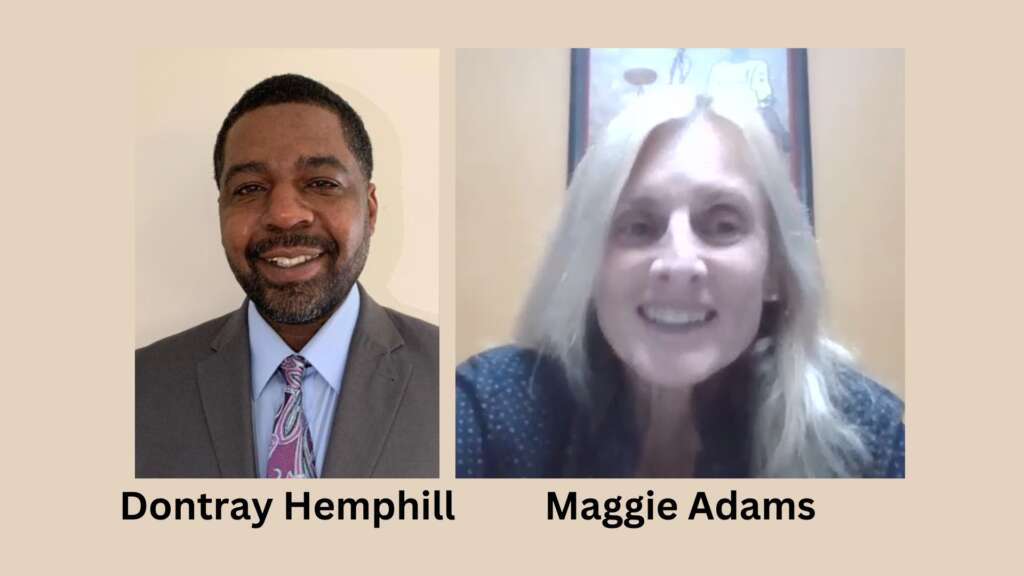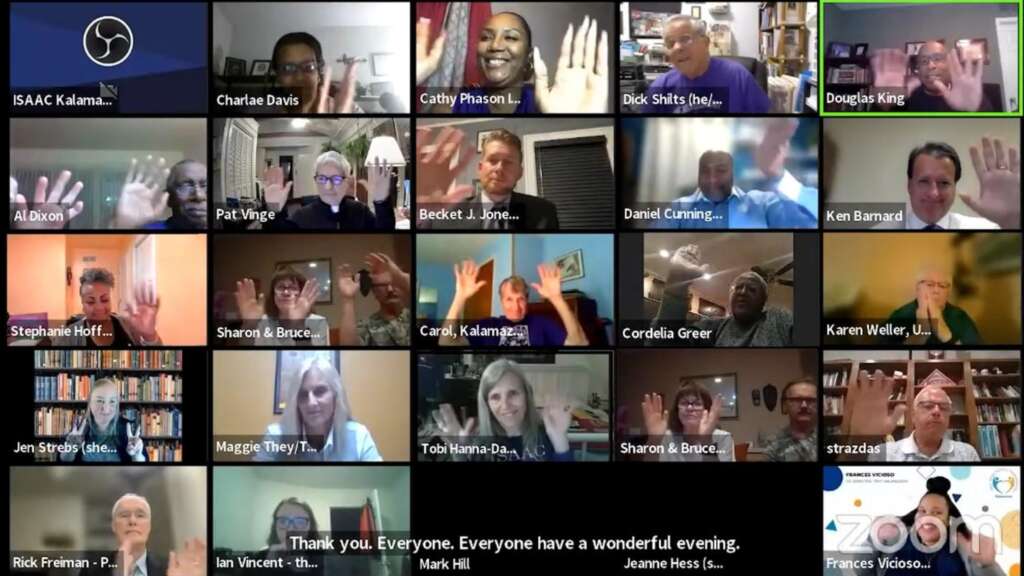 You’re invited to our Racial Healing Retreat for Clergy, Leadership Board members, Task Force members, Congregations & Organizations’ future or potential representatives to ISAAC, and everyone who feels part of ISAAC!
You’re invited to our Racial Healing Retreat for Clergy, Leadership Board members, Task Force members, Congregations & Organizations’ future or potential representatives to ISAAC, and everyone who feels part of ISAAC!
It’s on Thursday, July 13, 9:00 am – 5:00 pm, at one of our ISAAC member congregations. It will be led by experienced facilitators from the Center for Courage & Renewal in Seattle WA and is hosted locally by SHARE (Society for History And Racial Equity.)
Help us build the Beloved Community–send representatives from your congregation or organization! There’s no registration fee—though donations & dishes to pass are very welcome. Capacity is only 24, so register soon!
Register by contacting ISAAC at 341-4213 or isaackalamazoo@gmail.com
Details
Healing Together Retreat
In this full-day healing retreat a quiet, focused, disciplined and supportive space is created. It is led by experienced facilitators prepared by the Center for Courage and Renewal, founded by Parker Palmer and dedicated to supporting people in becoming forces for positive personal and community change. The purpose of the retreat is to facilitate an acknowledgement of the truth about racism in America’s history and its continuing impact on our lives today so that participants can be a part of a community that works towards a new legacy of justice, honesty, and connection.
Participants are guided in:
- making use of their own personal stories to better understand complex issues of race from varied perspectives;
- coming to a deeper understanding of how racism is impacting their lives and the life of our community;
- setting personal goals for transformation;
- connecting with others to develop a vision for ongoing community transformation.
Retreat Facilitators:
Beverly Coleman is a consultant and experienced facilitator for the Center for Courage and Renewal in Seattle WA. She currently serves as a facilitator for the Center’s Diversity Task Force and is a past member of the Center’s Leadership Team for Facilitator Preparation. She has facilitated “Courage to Lead” Formation Retreats, the “Courage to Teach” two-year retreat series at the Fetzer Institute and various local and national retreats for the National Drug Courts Association. She is a licensed social worker and served for more than 25 years as a public school social worker. She holds a B.A. in Education and Psychology from Wilmington College in Wilmington, Ohio and an M.A. in Social Work from Western Michigan University.
Caren Dybek is a facilitator prepared by the Center for Courage and Renewal in Seattle. She has collaborated in designing the innovative Courage to Lead: Nurturing the Heart of the Leader Retreat Series which draws together leaders of the educational, non-profit and civic realms. She has worked for eleven years in retreat and staff development settings with K-12 and university educators, non-profit and civic leaders. She holds degrees in English and educational psychology from Loyola University, Chicago and the University of Iowa. Caren has taught on the elementary, middle school, high school and university levels in private and public schools in the inner-city of Chicago, the Virgin Islands, Iowa City and Kalamazoo.
COMMENTS FROM RACIAL HEALING PROGRAM PARTICIPANTS
- I am able to see how the healing is now going beyond the head & now entering the heart & soul.
- The more I hear stories from others, the more I understand and appreciate who each person is.
- Does not matter how I was introduced to Race and the issues behind it. If I said nothing or didn’t do anything, it would be an injustice to others and a dishonor to myself.
- I think I’ve resolved a puzzle/question/issue about white-black relations that has bothered me for over a decade. I’ve found this has led to some healing and self-understanding.
- Honest sharing of our personal stories in small groups … leads to deeper understanding of each other, empathy, willingness to engage in the hard work of trying to effect change where we can.
- It is very easy to make assumptions about people we don’t know. It is hard to check yourself in making those assumptions, but it is critical to actually engage and talk and listen to people with an open mind & heart in order to understand who they really are.
- Facilitators were genuine, and were involved. It was a safe place to share‐even if we were uncomfortable.
- The leaders effectively opened conversations about race that went below “polite superficiality.”
- Have grown to believe that whites can be honest about their history & continued treatment of people of color & change the world in which we live.
 ISAAC
ISAAC





 Ed Genesis is an artist, poet, musician, organizer, entrepreneur, and community leader. Born and raised in Gary, Indiana and moved to Kalamazoo, Michigan permanently in his early 20’s, his love of art/music, his passion for his people and community, and his gift of creativity are evident in all areas of his work. In October 2018 Ed Genesis released a song to accompany the campaign he was working on around school push out, entitled Junior High, which was distributed nationwide including on his own iHeart radio station, Spotify, and iTunes.
Ed Genesis is an artist, poet, musician, organizer, entrepreneur, and community leader. Born and raised in Gary, Indiana and moved to Kalamazoo, Michigan permanently in his early 20’s, his love of art/music, his passion for his people and community, and his gift of creativity are evident in all areas of his work. In October 2018 Ed Genesis released a song to accompany the campaign he was working on around school push out, entitled Junior High, which was distributed nationwide including on his own iHeart radio station, Spotify, and iTunes.